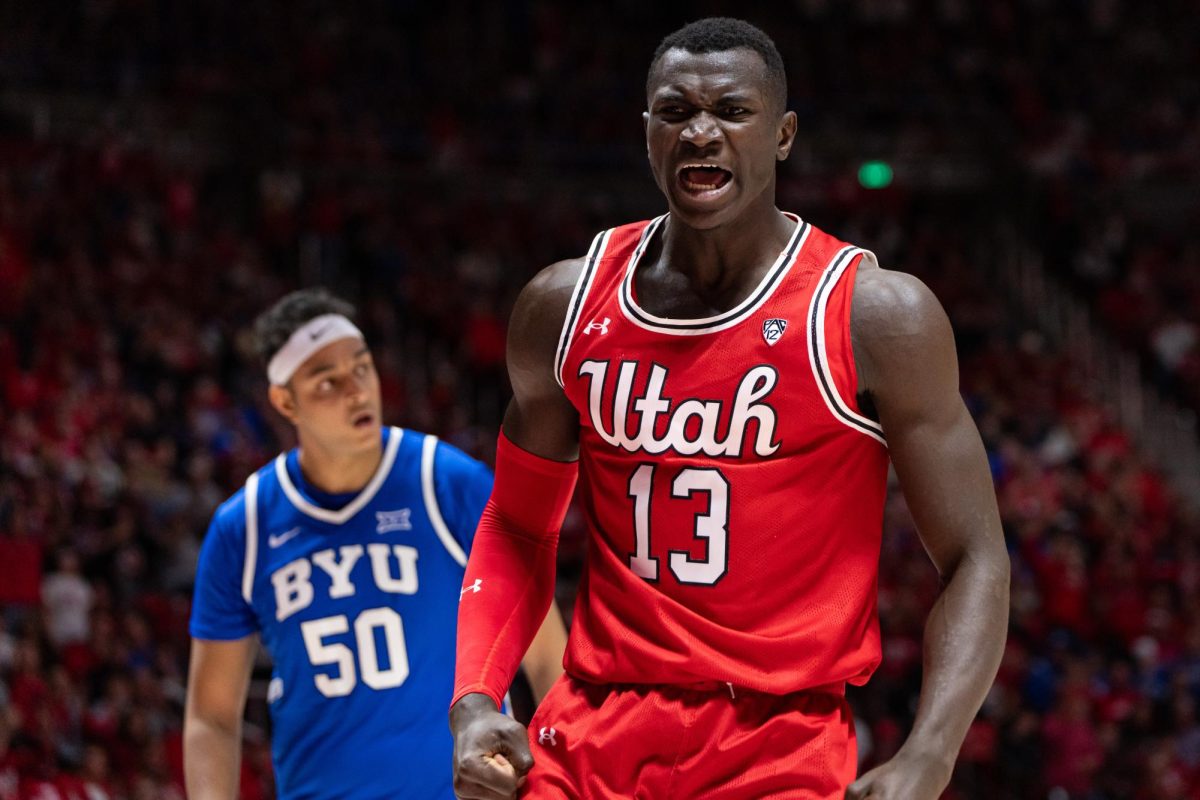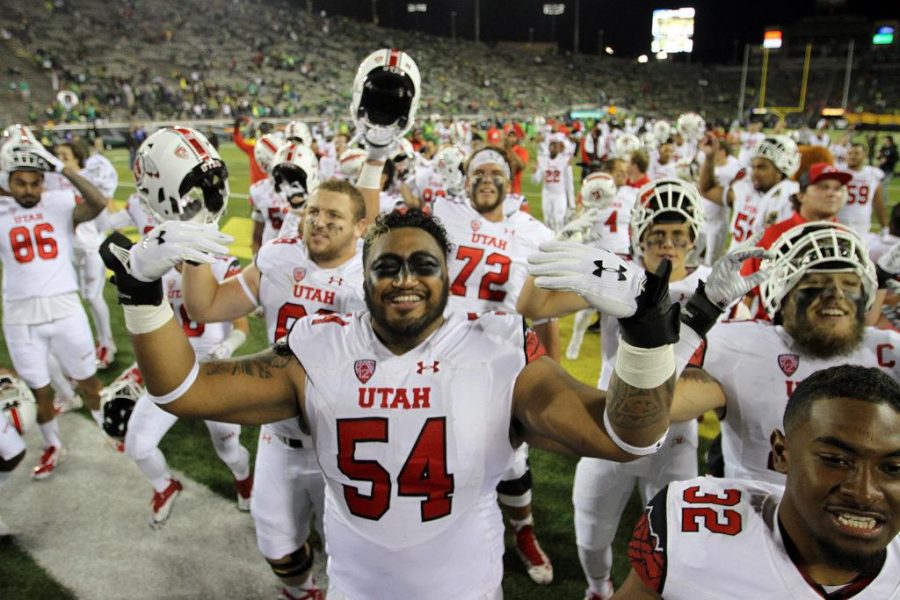[row cols_nr=”2″]
[col size=”6″]
Performance Doesn’t Guarantee a Paycheck
Jared Walch
Recently, the hot topic swirling around college sports has been the issue of unionizing and payment. College athletes from several schools threatened to unionize and demanded they be paid royalties when video games were released containing their names and likenesses. The topic has even roped in famous non-athletes such as Jay Bilas of ESPN. Though it originally started as a question about video game royalties, it has blossomed into an argument about payment in general. While this issue certainly isn’t new, it has become intensified in recent months and years.
The proponents of this argument like to claim that athletes should be paid because they are performing. The athletes also bring in a lot of money and proponents tend to view the money as an excess, something that isn’t already planned for.
The first problem with this argument is that, while the athletes are putting their bodies on the line, they are doing so voluntarily. No one is forcing them to participate. Though every athlete performs, not every athlete gets injured. Sports are different and the chance of injury in different sports varies. A swimmer’s chances of injury are not as high as a football or basketball player.
Just because a college athlete performs doesn’t entitle them to a paycheck.
Second, only a few sports tend to bring in money. Often, it is the big programs — football and basketball —that bring in the most revenue. Other programs don’t make any money while some even tend to lose money. It is the big programs that pay for all the smaller programs. The money these programs bring in goes to pay for the facilities, the training, the programs and all kinds of other expenses of the university. So, just because there is a cash cow that produces a lot of money, it doesn’t mean that money can be used to pay the athletes.
Most people tend to overlook the fact that so many athletes are already paid monetarily in the form of scholarships. But looking past that, they are also paid in experience. It is the education they get that matters. Athletes often have their pick of the litter when it comes where they want to go and play. Just because they aren’t receiving money for what they do doesn’t mean they are aren’t being paid.
The logistics of this idea are just too unrealistic. First, who pays the athletes? The school, the conference, or the NCAA itself? Second, since most college athletics programs don’t generate money, who deserves to be paid? Each individual athlete, or just the ones who bring in the dough?
What about the schools who don’t have big money-making programs? Should they be subsidized or not? If an athlete can go to a big name school and be paid, why would they ever consider going to a smaller school where they can get a better education? Would the U be able to keep up with the demands of student athletes?
Beyond that, it would ruin the integrity of college sports. How many of us hate watching professional sports because we view the athletes as overpaid, under-worked crybabies who behave like a bunch of spoiled first graders? Do we really want to turn college athletes into the same thing?
I love watching college athletics because you can tell how much passion they have for the game. They live for their sport and do so because it is their passion, not because they make money from it.
I understand that it can look bad at the outset, but you have to ignore a lot of things to make the argument for payment. You have to overlook the fact that these athletes get the best training, best facilities, oftentimes the best nutrition and the best coaching in the world.
The fact is, athletes shouldn’t be compensated when they already have so many things going for them. Maybe I am a college sports purist, but I think bringing money into the equation will only be a bad thing for college athletics.
[/col]
[col size=”6″]
Athletes Deserve Compensation
Blake Marshall
College athletics is big business. In fact, the state of Utah’s highest paid public official is Kyle Whittingham. Millions of dollars are spent updating stadiums, training facilities and other areas of athletic departments, all for “amateur” athletes to compete. Money is flooding into these athletic departments and the athletes benefit in many ways, but do athletes deserve to be paid for what they do?
This is an argument that has been perpetuated for decades. Obviously, the idea of the student-athlete has been flipped to the athlete-student, and the NCAA regulation that 50 percent of student athletes have to graduate is very loose, but in order to keep the façade of a student-first mentality, college athletes are not “paid.” Stipends are starting to be circulated for food and other essentials, but athletes are not paid for what they do. They should be paid, and here’s why.
Athletes work more than most students. The NCAA has a regulation that is intended to limit training for players to 20 hours per week. Would you be surprised to learn that very few athletes reported only practicing 20 hours per week? According to an NCAA survey conducted in 2011, Division I football players averaged 43 hours a week. Baseball came in second with 42.1 hours and men’s basketball came in third with 39.2. These are in-season numbers. This means that on top of class work and homework, athletes are working a full-time job.
Sure, many of these athletes are on scholarship, which pays for their tuition and room and board in most cases, and we’ve covered the stipends, which average between $2,000 and $5,000 annually. Let’s get real. How many of us can live off of $2,000 a year? To put this in context, let’s say I work for a company that offers tuition assistance. Let’s say that this company offers to assist my whole tuition for being a full-time employee, but my paycheck every two weeks works out to be $77. Could I live off that? Even as a full-time employee with access to the employee cafeteria? I don’t think many of us could, yet we expect athletes to do so.
The university makes money because of the athletes. Let’s talk for a second about Johnny Manziel. Yes, Johnny Football is definitely not the beacon model behavior for student-athletes, but there was an instance during his time at Texas A&M where he was suspended (albeit for a half against an inferior opponent) for allegedly selling merchandise with his autograph on it. According to NCAA bylaw 12.5.2.1, players are forbidden from permitting “the use of his or her name or picture to advertise, recommend or promote directly the sale or use of a commercial product or service of any kind.”
That’s interesting when you look around town and see images of football players, basketball players and gymnasts on billboards to sell tickets. I guess as long as their image is making the right people money, bylaws are not in effect.
Paying athletes could actually keep them in school.
College basketball allows players to declare themselves eligible for the NBA draft after their freshman season, if they so choose. In football you can declare for the NFL three years after graduating from high school, so essentially after your junior season of college.
If college athletes were paid for the talents that they possess while in school, they might be more willing to finish their degree, just on the off chance that the sports path doesn’t work out for them. Many players cite financial hardship as the reason that they declare early for the draft, and who can blame them? For most athletes coming from low-income situations, college is just a time that they are a horse on a cart, all the while the carrot of a professional contract is being dangled in front of their face.
Obviously, there are those who want to preserve “the purity of amateur sport”, and paying athletes would tarnish that. The reality is athletes are working full-time jobs for an average wage. While the institutions they are attending are getting rich, they are missing out on their pay day.
[/col]
[/row]
[row cols_nr=”2″]
[/row]















justice franklin • Oct 26, 2017 at 7:29 am
actully Athletes shuch as Lebron James should not get payed because that is not fair to the other homeless people who are not that flexable and they do not know how to play basketball or football and that was there chose to play sports or not and they choses to so bacicly they should not get paid. Also when they get ingred they can pay for medical bills and other stuff like that and what about the homeless people and they could not pay for stuff like that so that is my opinion.
Erik Prince • Oct 4, 2017 at 11:48 am
Athletes should be paid considering the revenue that universities generate off them. University already scams students by charging $20-$40K in tuition alone. You don’t need a college degree to work at Starbucks. College is designed to created corporate worker bees enslaved to massive debt.